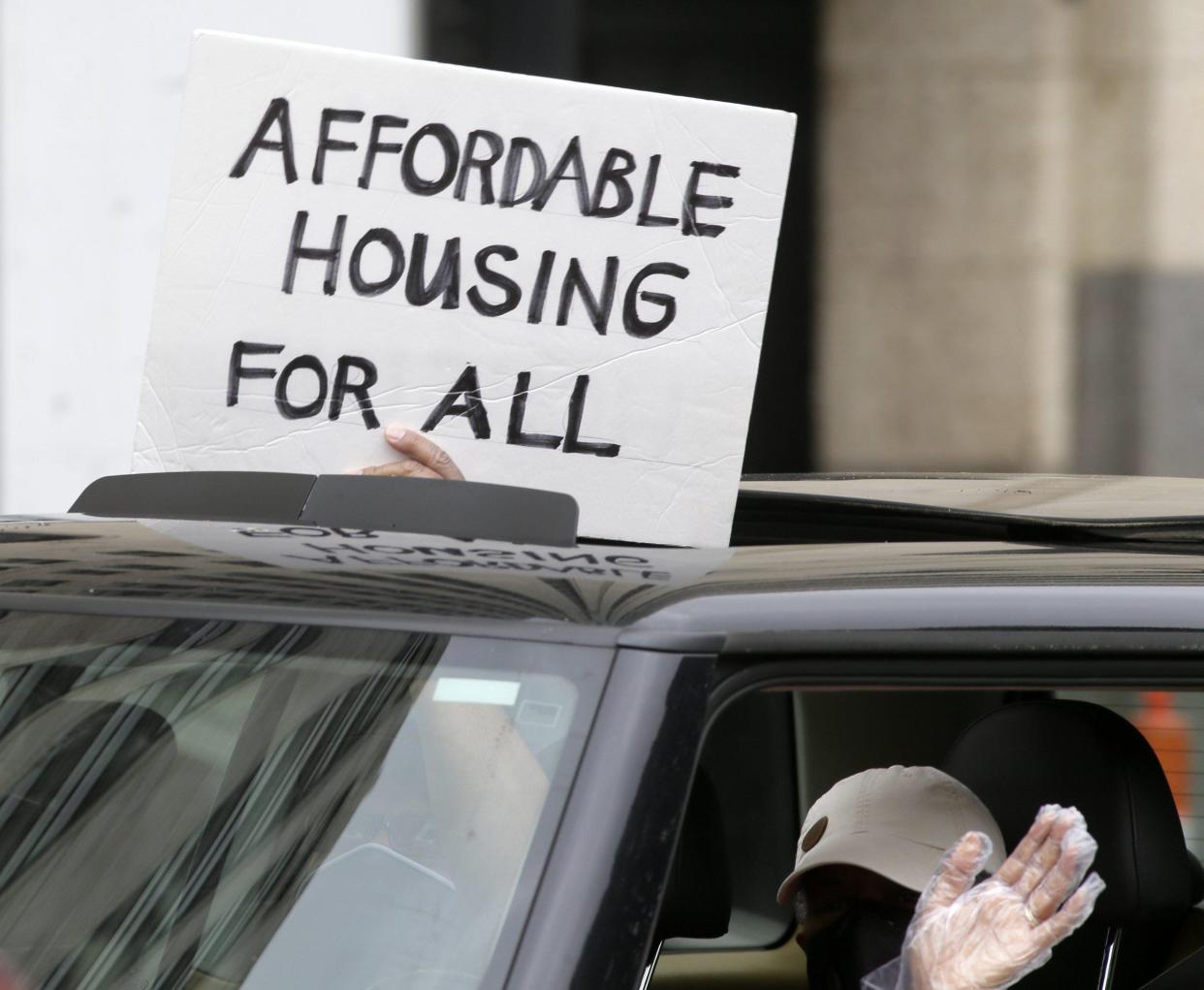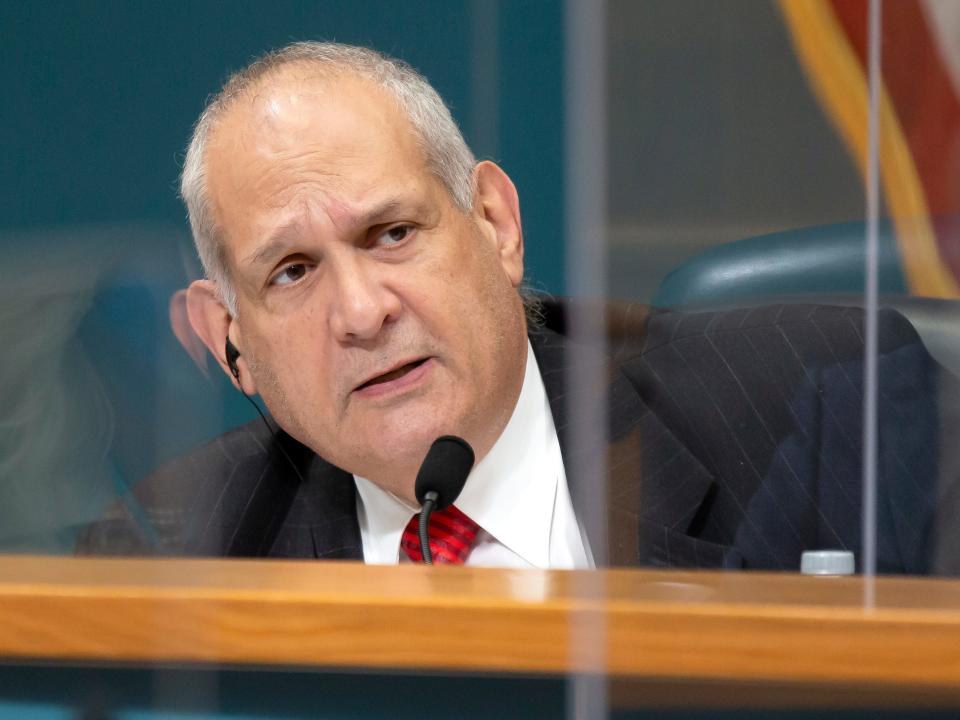'A crisis we need to address': County puts $200 million affordable housing bond on ballot

Palm Beach County commissioners Tuesday voted 4-2 to ask voters in November to approve a $200 million bond issue to address the county’s housing affordability crisis. At the same time, commissioners voted 6-0 to table a proposed $100 million water bond issue.
Commissioners Melissa McKinlay and Maria Marino voted against the housing bond issue. County Mayor Robert Weinroth and Commissioners Dave Kerner, Gregg Weiss and Mack Bernard supported it.
“This is a crisis we need to address,” said Bernard of the lack of affordable housing in Palm Beach County. “Our county workers, police officers, fire fighters and teachers cannot afford to live here.”
More: Lack of affordable housing threatens Palm Beach County's economy, analysts say at forum
FOR SUBSCRIBERS: West Palm Beach commits $640,000 toward possible reconstruction of senior housing complex
FOR SUBSCRIBERS: GL Homes offers nearly $7 million to golf club to improve chances of building 1,000 homes near Boca
Jack Weir, chair of the Housing Leadership Council, claims housing costs in Palm Beach County have become more expensive than in San Francisco and Manhattan “relative to wages and housing prices.” He said the business community is strongly supportive of the housing bond.
A home with a taxable value of $326,000 is expected to pay between $14 and $20 a year to pay off the 20-year bond.
Laura Contrera, vice president of human services at Gulfstream Goodwill, said she had a director earning more than $60,000 a year who recently resigned because her rent increased by more than 40%.

Michele Jacobs, president of the Economic Council of Palm Beach County, said the council will be the “quarterback to advocate and educate” the voters as to why this bond should be approved.
“Once you increase the supply, it will help to moderate housing costs,” she noted. “This is a quality-of-life issue.”
McKinlay and Marino said they recognize the need for affordable housing but argued now is not the time to saddle taxpayers with an additional tax burden considering the impact of surging inflation.
Marino referred to a recent article in The Palm Beach Post that discussed how a Korean War veteran was having trouble paying his bills and was concerned that he might soon be homeless. Marino noted the difficulty people are having coping with the highest inflation rate in decades. The county needs to find ways to reduce taxes, not increase them, she said, noting that some bonds will soon be retired. When that happens, the debt service will be reduced.
“If we do not do another bond, taxpayers will see a tax reduction,” she noted.
County Mayor Robert Weinroth, the swing vote, said he, too, was troubled over the prospect of asking taxpayers to pay more but called the need for affordable housing “essential” to the well-being of the county.
“Restaurants are empty, not for lack of customers but for lack of employees,” he said. Weinroth noted, though, that getting voter approval will be a “difficult sell” as too many taxpayers are struggling to pay their bills.
How will the $200 million be used to help affordable housing?
If approved, the 20-year bonds could be issued some time next year.
The funds will be used to finance the acquisition and construction of condominiums, multi-family rental units, single-family homes and townhomes. The projects can be mixed-income and mixed-use; however, bond financing will only be available for the eligible housing units that meet county requirements.
Affordable housing is defined as housing that is affordable to households whose income does not exceed 80% of the Area Median Income (AMI). In fiscal year 2022, for a household of four, that would mean that the maximum income was $73,600.
Workforce housing is defined as housing affordable to households whose income is between 60% AMI and 140% AMI. That means that in fiscal year 2022, the eligible household income was between $54,180 and $126,420.
Want to get The Dirt?
Stay up to date on South Florida's sizzling real estate market and sign up for The Dirt weekly newsletter, delivered every Tuesday! Exclusively for Palm Beach Post subscribers.
The county will solicit proposals from developers. Those proposals will be ranked through a competitive process. All awards must be approved by county commissioners.
Commissioner Dave Kerner said it was imperative that voters be allowed to decide whether the housing bond should be approved. “What we are doing today is allowing voters to make that choice,” he said.
The bond money is expected to be used to provide last-gap financing for developers. Most of the financing would be obtained through other sources. That way, Weir explained the bond money could be used to assist a greater number of projects.
He noted that housing advocates cannot look to the state for any assistance. The Legislature last year raided the Housing Trust Fund to pay for projects unrelated to housing, according to Weir.
As for the $100 million water bond, County commissioners agreed there was a need for it but questioned whether it was the right time to ask voters to approve it. They voted to table it, and consider it this year or next year.
Mike Diamond is a journalist at The Palm Beach Post, part of the USA TODAY Florida Network. He covers county government and transportation. You can reach him at mdiamond@pbpost.com. Help support local journalism. Subscribe today.
This article originally appeared on Palm Beach Post: Palm Beach County puts $200 affordable housing bond on November ballot

